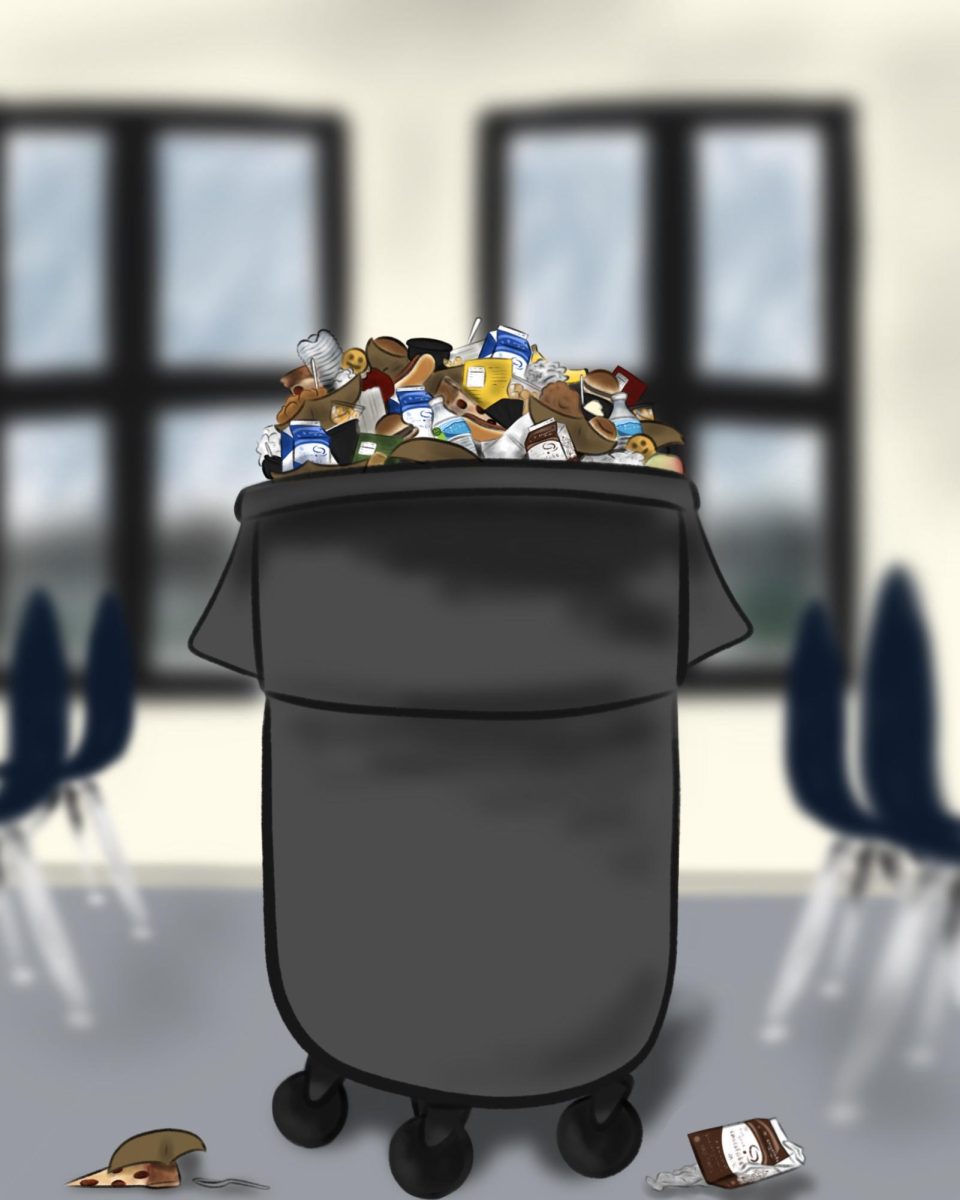The provision of lunch to students is one of the foremost responsibilities of the school board, district, and state. While Robinson provides a consistent lunch, there is a lot more our school board could be doing to mitigate the food waste problem that results from our overproduction and over-serving of cafeteria food.
According to the Journal of Child Nutrition and Management, “Approximately one-third of all food produced globally for human consumption is lost or wasted, which is equivalent to about 1.3 billion tons of food per year.”
School systems are some of the biggest contributors to this problem, with food waste in schools constituting over 530,000 tons or 1.7 billion dollars annually. Much of this waste is due to the overproduction of food within cafeterias. While the goal of ensuring every student has access to a meal should unequivocally be met, the ways in which this goal is ensured lead students to trash the remainder of their meals, resulting in wasted food, money and resources.
Another effect of food waste is the impact upon the environment of the many tons of uneaten food. A simple way to combat this outside of shifting production is the use of composting. Composting excess food creates nutrient rich soil which can be used by school programs, for example the Robinson garden, or distributed elsewhere.
The overproduction of meals needs to be curbed in order to eliminate as much waste as is reasonably possible. One way in which to lower overproduction is by taking a more accurate reading of the school’s average food consumption. Though a review such as this requires an upfront investment of money, in the long run the money saved by lowering food wastes is multiplicative to that of the upfront investment. The food found to be in excess of necessity could then be donated to charitable organizations such as food banks or homeless shelters, for example. By passing on leftover food, we can diminish the environmental impact of overproduction while simultaneously supporting local charities in a material and sustainable manner.
Ultimately, food waste is a significant problem for both Robinson and schools nationwide. Despite the size of the issue, we can make an effort to make local changes in order to combat the overproduction of food and its environmental impact through a more conscious approach to food within our school.


